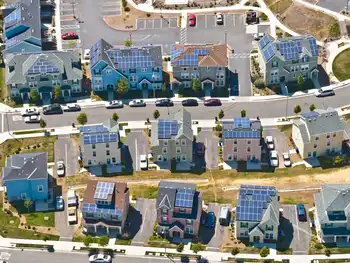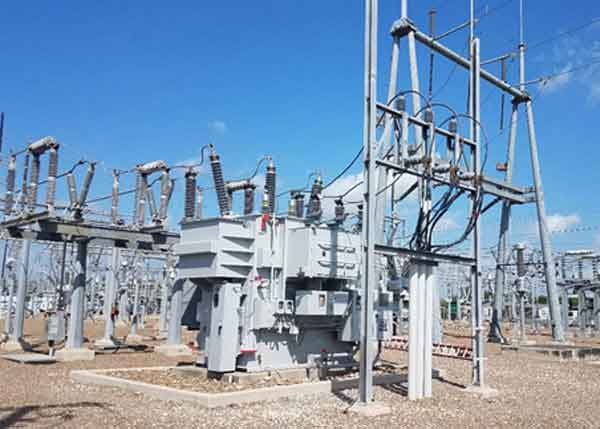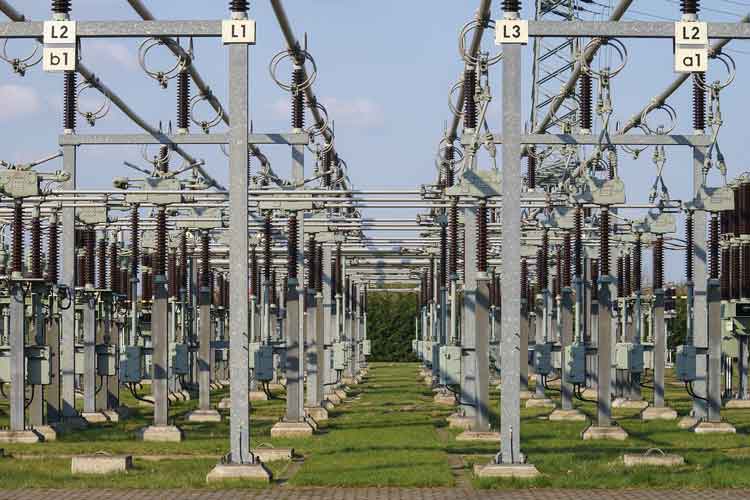Fraser Papers looks to cogeneration
By Saint John Telegraph-Journal
CSA Z463 Electrical Maintenance -
Our customized live online or in‑person group training can be delivered to your staff at your location.

- Live Online
- 6 hours Instructor-led
- Group Training Available
The company — which has operations in New Brunswick, Quebec, Maine and New Hampshire — has been unable to address a $194-million pension deficit, its largest single shortfall, while markets for pulp and lumber remain battered.
The move comes just a day after Ottawa announced a $1-billion package for the forestry sector geared at helping pulp producers compete with tax credits awarded to their U.S. counterparts, and less than a week after the New Brunswick government offered the firm a greater permanent Crown timber allocation and attempted to address the company's concerns over high energy costs.
President and CEO Peter Gordon said the company had run out of working capital and restructuring would allow the firm to re-jig its business to generate "sufficient cash flow."
The company has applied under Canada's Companies' Creditors Arrangement Act and Chapter 15 of the U.S. Bankruptcy Code.
Pulp operations remain big money-losers as pulp prices are driven down by U.S. producers taking advantage of a so-called black liquor refundable tax credit, offered to firms burning the pulping byproduct mixed with another fuel.
The executive came out critical of Canada's new Pulp and Paper Green Transformation Program, painting the aid as too little, too late; firms qualifying must directly reinvest the 16-cent-per-litre payout offered to mills burning black liquor on environmental retrofits.
"In other words, the program does not help us directly with our short-term problem at Fraser," Gordon said.
Under the restructuring plan, profitable paper operations in Gorham, New Hampshire and Madawaska, Maine, will continue to operate, he said, as will a sawmill in Masardis, Maine.
"What we're going to focus on is our paper business," he said.
The fate remains uncertain for a sawmill in Millinocket, Maine — on temporary shutdown — and a now-closed pulp mill in Thurso, Que., where the company hopes the provincial government will step in with enough cash to restart.
The Madawaska paper mill is integrated with the company's Edmundston complex, where a biomass cogeneration facility that supplies NB Power with electricity has restarted and a groundwood pulp mill is now up and running - both after maintenance closures.
The company has said that it must find ways to reduce electricity, wood and labour costs before reopening the sulphite mill, which should have maintenance complete by July 6.
Gordon said the provincial government had addressed some of the company's concerns by upping its proportion of the province's Crown wood to 20 per cent — less than the 28-per-cent it had requested — while allowing the company to use another turbine at its cogeneration facility, improving efficiency and in turn cutting costs.
Gordon said he is travelling back and forth between New Brunswick and his office in Toronto to hammer out a union deal on which the reopening of the Edmundston sulphite mill is contingent, declining to comment further on the nature of discussions.
Louis-Philippe Gauthier, president of the Conseil économique du Nouveau-Brunswick inc., said the future of the company's Edmundston complex is directly tied to the prosperity of the region.
"It is one of the anchors of the northwestern economy," Gauthier said, adding that he feels governments have not done enough to help the forestry sector.
"As a matter of public policy, what is the decision that the policy makers will have when it relates to the future of forestry in the economy and all these communities that depend on this industry?"
The firm's success is equally important to industry, according to Mark Arsenault, president and CEO of the New Brunswick Forest Products Association.
"Fraser is an economic pillar for the north and there are a lot of companies that are counting on their continued success," Arsenault said, adding that news of the creditor protection filing is "indicative of the challenging times the industry is facing."
Fraser Papers has cobbled together $23 million from two facilities — CIT Business Credit Canada and Brookfield Asset Management, which controls the company — to fund operations during restructuring.
Gordon contends the process is more about addressing company operations above and beyond money owed.
"We don't have a lot of debt," he said. "This is not an issue of having a billion dollars of debt."
The province is one of three secured creditors and is owed $29 million on a $40-million credit facility awarded to the company last year to modernize its Plaster Rock sawmill, according to Gordon, who said he had discussed the credit protection with the government.
Meanwhile Donald Arseneault, the Liberal labour minister and MLA representing the constituency of Dalhousie-Restigouche East, said the province is owed the full $40 million.
Gordon offered his version of the financials, which put CIT Business Credit Canada — owed $62 million — at the top of the list of secured creditors. CIBC is owed $28 million, with Brookfield Asset Management backstopping the CIBC facility and $28 million of the CIT Business Credit Canada facility with a guarantee.
Unsecured creditors include pension obligations, at $194-million, and $53 million in post-retirement medical benefits, while industry firms are owed a total of $84 million, Gordon said.
The CIBC loan comes due at the end of September, Gordon said, adding this to the list of reasons to file for protection now.
In its latest financial report, Fraser Papers narrowed its first quarter loss to US$16.7 million from $19.1 million as the company sold more specialty papers in an otherwise sluggish market. However, sales fell to US$156.1 million from $180.7 million.
After a trading halt, Fraser Papers shares resumed trading and fell 7.5 cents to 6.5 cents, a drop of nearly 54 per cent, on a trading volume of more than 800,000 shares on the TSX.











